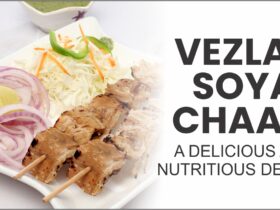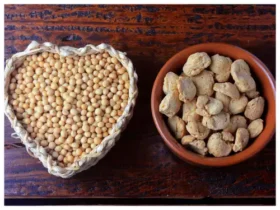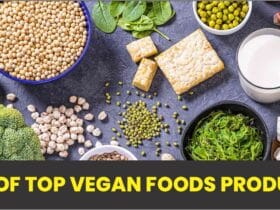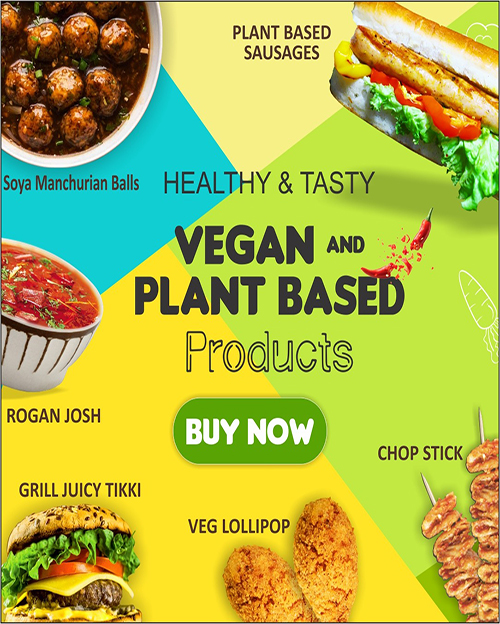As the world becomes more conscious of health, sustainability, and animal welfare, the demand for alternative protein sources has skyrocketed. Among these, the rise of plant-based and vegan chicken substitutes has been remarkable. This comprehensive guide delves into the realm of veg chicken, chicken substitute, and plant-based alternatives, shedding light on their nutritional aspects, environmental impact, and the most popular products available.
The Need for Alternatives
The traditional chicken industry poses concerns related to animal welfare, resource depletion, and environmental damage. Plant-based and vegan chicken substitutes offer a solution by providing protein-rich options that mimic the taste and texture of conventional chicken.
Nutritional Aspects
Plant-based chicken substitutes are designed to provide comparable protein content to conventional chicken. They are often made from sources like soy, wheat, peas, or mycoprotein. Nutrients such as vitamins, minerals, and dietary fiber can also be added during the manufacturing process to enhance their nutritional profile.
Popular Chicken Substitutes
Soy-Based Chicken: Made from soy protein, these chicken substitute are versatile and closely resemble the texture of real chicken. They are available in various forms, such as strips, nuggets, and patties.
Wheat Gluten (Seitan) Chicken: Seitan, a protein-rich wheat gluten, is used to create chewy and meaty textures in plant-based chicken products. It’s a staple in many vegan diets.
Pea Protein Chicken: Derived from yellow peas, this protein source offers a good amino acid profile and is often used to create tenderness in chicken substitutes.
Mycoprotein Chicken: My co-protein is derived from fungi and is a sustainable protein source. It’s used to make products like “Quorn,” known for its unique texture and taste.
Environmental Impact
The environmental benefits of plant-based chicken alternatives are substantial. They require fewer natural resources, emit fewer greenhouse gases, and have a significantly lower impact on land and water usage compared to conventional chicken production.
Culinary Applications
Plant-based chicken substitutes have gained popularity not only among vegans and vegetarians but also among omnivores looking to reduce their meat consumption. These alternatives can be used in a wide range of dishes, including stir-fries, sandwiches, curries, salads, and more.
Health Implications
Replacing conventional chicken with plant-based alternatives can have positive health effects. These products often have lower levels of saturated fats and cholesterol, making them heart-healthy options. However, it’s essential to be mindful of sodium content and overall ingredient quality.
Market and Brands
The market for plant-based chicken substitutes has witnessed exponential growth in recent years. Well-known brands like Beyond Meat, Impossible Foods, Gardein, and Quorn offer a variety of products that cater to different tastes and dietary preferences.
DIY Plant-Based Chicken
For those who enjoy culinary experimentation, making homemade plant-based chicken substitutes can be a rewarding experience. Recipes often involve combining protein-rich ingredients with flavorings and binders to achieve the desired texture and taste.
Future Prospects
As technology and food science continue to evolve, the quality and variety of plant-based chicken alternatives are likely to improve. Innovation in texture, taste, and nutritional profiles will drive their popularity even further.
Read Also: Deliciously Meat-Free Recipe
What is Vegetarian Chicken Made?
Vegetarian chicken is typically made from plant-based ingredients that are carefully combined to mimic the taste, texture, and appearance of traditional chicken. Common base ingredients include soy protein, wheat gluten (seitan), pea protein, and mycoprotein (derived from fungi). These ingredients are often seasoned with a blend of herbs, spices, and natural flavors to create a product that closely resembles the taste of chicken.
What is Vegetarian Chicken Called?
Vegetarian chicken goes by various names, such as plant-based chicken, vegan chicken, meatless chicken, or faux chicken. The choice of terminology may vary based on the manufacturer and the region.
Read Also: Best Substitutes for Soy Sauce
Is Vegetarian Chicken Better?
The question of whether vegetarian chicken is better depends on your perspective. From an environmental standpoint, plant-based chicken is generally considered more sustainable than traditional chicken farming, as it requires fewer resources, emits fewer greenhouse gases, and reduces the demand for animal agriculture. Health-wise, Veg Chicken tends to be lower in saturated fats and cholesterol compared to animal-based chicken, making it a healthier option for those seeking to reduce their intake of these components.
Is Veggie Chicken Vegetarian?
Yes, vegetarian chicken is indeed vegetarian. It contains no animal products or by-products, adhering to the principles of vegetarianism.
What’s Fake Chicken Called?
Fake chicken is commonly referred to as plant-based chicken, vegan chicken, or meat substitute chicken.
Is Artificial Chicken Non-Veg?
Artificial chicken, in the context of plant-based alternatives, is considered non-vegetarian since it does not contain any animal-derived ingredients. It’s suitable for vegetarians and vegans alike.
How is Artificial Chicken Made?
The process of making artificial chicken involves combining plant-based proteins, such as soy, wheat gluten, or pea protein, with other natural ingredients like oils, flavorings, and binders. These components are mixed, textured, and sometimes shaped to resemble the fibers and appearance of real chicken meat. Advanced technologies have allowed manufacturers to create highly convincing imitations that even replicate the “juiciness” of meat.
Why Non-Veg Might Be Preferred by Some?
While plant-based alternatives have gained popularity, some individuals still prefer non-vegetarian options for various reasons. These may include personal taste preferences, cultural or culinary traditions, and concerns about protein intake. It’s important to note that both vegetarian and non-vegetarian diets can be healthy when balanced and chosen based on individual needs and ethical considerations.
Why Are Vegetarians Strong?
The strength of vegetarians comes from a well-balanced diet that includes a variety of plant-based protein sources, such as legumes, nuts, seeds, tofu, and plant-based meat substitutes like vegetarian chicken. Additionally, many vegetarian athletes and bodybuilders have demonstrated that plant-based diets can provide ample protein, nutrients, and energy to support physical strength and performance.














Leave a Reply